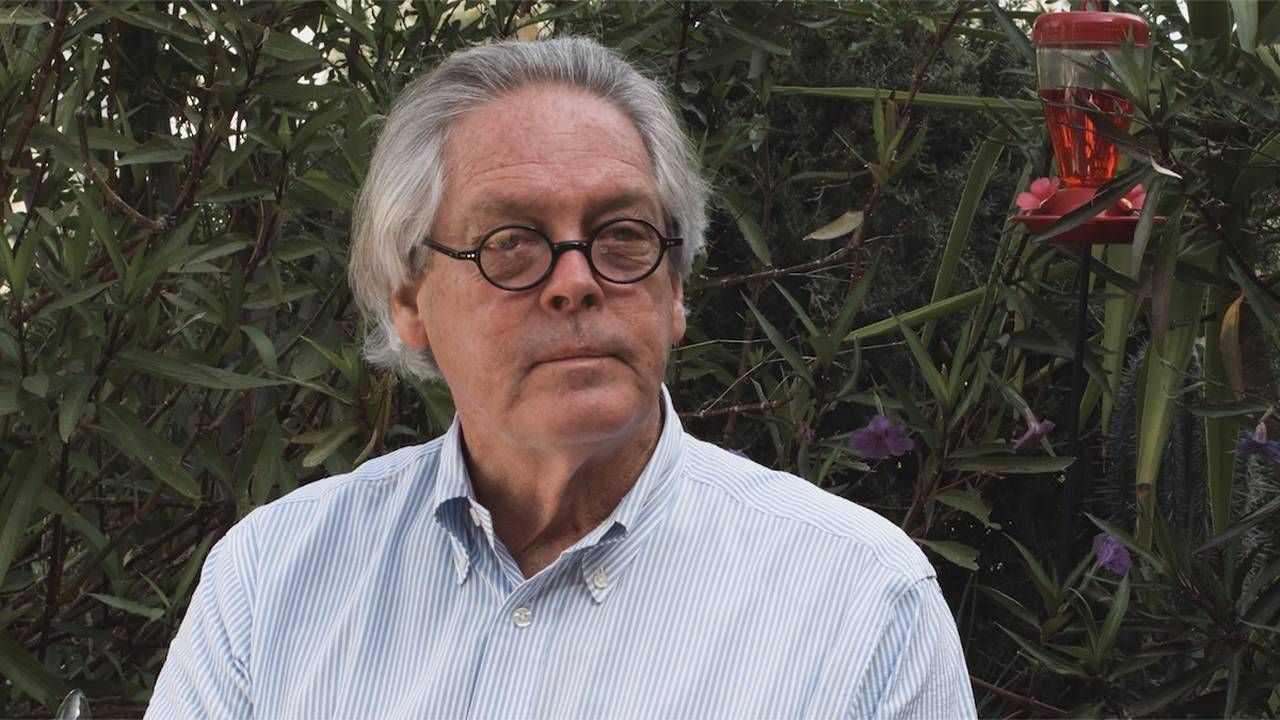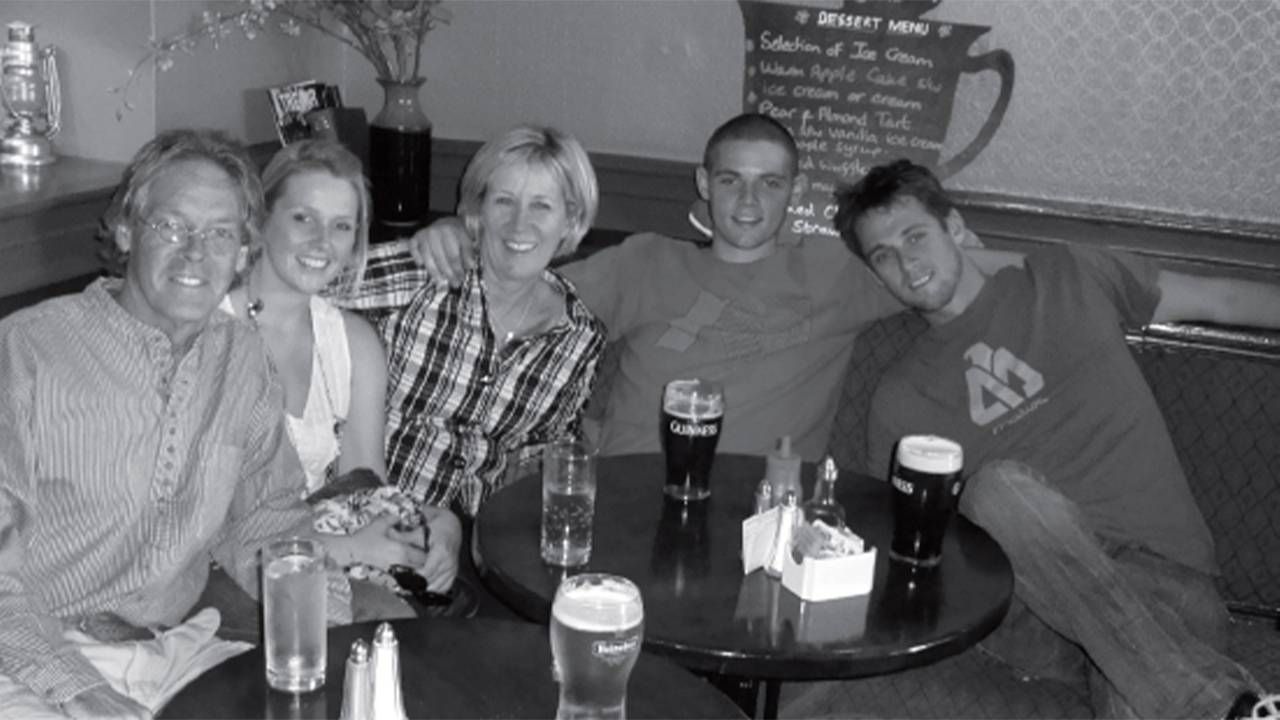Greg O’Brien Refuses to Hide From Alzheimer's Disease
Greg O'Brien's story of Alzheimer’s is about choice, love and advocacy
He's been called the Poet Laureate of Alzheimer's, an eloquent and witty spokesperson for a disease affecting fifty million worldwide. Greg O'Brien, an acclaimed journalist who lives on Cape Cod, was diagnosed with early-onset Alzheimer's in 2009 at fifty-nine.

The early diagnosis was because of a severe head trauma, which can bring the disease into bloom earlier if you're predisposed to it, as O'Brien is. But instead of hiding in the shadows, he chose to tell his story from the front lines of his battlefield.
"What I'm trying to do on my journey is take away the stigma and bring Alzheimer's and dementia out of the closet."
First, he wrote the ground-breaking book "On Pluto: Inside the Mind of Alzheimer's." Then he co-produced a documentary, Have you Heard About Greg?, which features O'Brien's friends, family, pastor, and two neurologists, including Lisa Genova, who wrote "Still Alice," which was adapted into a movie starring Julianne Moore.
O'Brien, now 72, has spoken across the country to groups as large as a thousand and intimate as a nursing home gathering.
He has received international accolades as a person who tackled the disease by talking frankly about it. Further, he has served on the National Alzheimer's Association Early Stage Advisory Group and is an advisor to the Cure Alzheimer's Fund of Board. He's also a board member of the Washington, D.C.-based advocacy organization UsAgainstAlzheimer's.
Next Avenue spoke with Greg O'Brien recently about his advocacy and how he's adapting to the progression of the disease. The following interview has been edited for length and clarity.
Next Avenue: What keeps you persevering and working hard even as you experience behavioral and psychiatric changes that accompany memory impairment and several debilitating physical issues?
Greg O'Brien: What I'm trying to do on my journey is take away the stigma and bring Alzheimer's and dementia out of the closet. I lost my maternal grandfather, mother and paternal uncle to this disease.
"Cognitive reserve is an extra fuel tank of brain capacity that also comes from exercising one's mind and body throughout one's life."
Fortunately, I've been blessed with what the Harvard experts call cognitive reserve, an extra fuel tank of brain capacity that also comes from exercising one's mind and body throughout one's life.
Who were the first people you spoke to about your diagnosis?
I told my kids Brendan, Colleen, and Conor, with my wife Mary Catherine beside me. I got them home under the guise of a family dinner. Brendan immediately said, "Well, Dad, that explains a lot!" And Conor said, "So, Dad, you're losing your mind!"
They had all noticed the symptoms and were deeply concerned. However, some people didn't want to talk about it outside my family, and others said, "how can we help?."
I wouldn't say I like cliches, but it takes a village. It probably would have been much harder for me to be in New York City dealing with this. But on Cape Cod, I have an extended family, which empowers me.
In your documentary, you share how you cried out at God for forsaking you. You said: "Do you know who I am? Then, immediately in my heart, I heard, 'Yes, dumbass, I made you, and I have you right where I want you.' And I started laughing." Those who know you say you have a wicked sense of humor, and this, coupled with strong faith, has kept you working, speaking and writing.
I'm not trying to proselytize here, but to answer the question, my determination comes from God. I have a deep faith — Irish Catholic early on, now more evangelical. I also have the gift of Irish humor and hope.
"When the brain fails, you can still thrive in a spiritual sense. This is because the inner spirit communicates at some level."
My mother, the hero of my life, taught me never to give in and that I can always do better. Her words have become a mantra throughout my life.
What are some of the biggest misconceptions or stereotypes surrounding Alzheimer's disease?
People want to define it in terms of the later stages. They don't come to grips with the twenty years in between when you're struggling. For most or many, the journey is twenty to twenty-five years.
One doesn't get Alzheimer's on the day of diagnosis. For most, it's a long, serpentine journey, and many, fearing the taboo of the disease, hide it for as long as they can, as my mother did, all the while living in fear.
So, what will you do with your time from the diagnosis? It's something everyone has to decide.
For me, my background in journalism kept me going. In journalism, you learn strategies of getting the story out and not being intimidated, persevering and taking good notes.
Another misconception is that people living with Alzheimer's are intellectually bankrupt or they're empty shells. Alzheimer's doesn't take away your IQ. Life becomes more complicated. Alzheimer's is a disease of the mind and the body, not the soul.
When the brain fails, you can still thrive in a spiritual sense. This is because the inner spirit communicates at some level.

You say your life has become a strategy, that you need to manage the disconnects, the drifting, the escalating memory loss, the absence of filter and judgment, and so on. What are some of your strategies?
I began labeling things like toothpaste, liquid soap, and rubbing alcohol. I've relied on copious notes and my iPhone with endless email reminders.
My MacBook Pro laptop is my portable brain. One will never see me without it. My mind used to be my best friend; now, there's no chance for reconciliation. With symptoms advancing, I couldn't write "On Pluto" today.
When I was first diagnosed, I spent time writing down everything I feared I would forget. After I was diagnosed, I'd crank the treadmill every night and race-walk four to five miles. I exercised my body and mind every night, which helped to reduce my confusion and restlessness.
Then, I'd write for two hours. The writing makes me feel whole again. When I don't recognize people I've known most of my life, I try to stay in the moment rather than panic.
"My mind used to be my best friend; now, there's no chance for reconciliation."
I also have a repertoire of banter, always ready for sports, politics, and religion. I work hard at deflecting the loss of judgment and filter. I am becoming more childlike, curiously enjoying the moment of innocence and potty talk.
And I take a daily cocktail of drugs — my smart pills. [They are] state-of-the-art prescriptions that diffuse the symptoms.
Your wife says that when one person has Alzheimer's, the entire family gets it and tests her strength and faith. What advice do you have for caregivers?
It's a four-letter word: LOVE. Show love. You can show it in numerous ways, like touch. Speak to their hearts and souls—those with Alzheimer's need to be accepted for where they are.
What will it take to slay this monster of a disease?
We need a critical mass of individuals and advocates reaching out for more research funding. This won't happen overnight. Alzheimer's is an incredibly complex Rubik's Cube of a disease.
In the interim, it's critical to know the strategies and to have a support system in place as outlined on websites such as UsAgainstAlzheimer's. And many non-profit organizations across the country provide services to those facing Alzheimer's.

